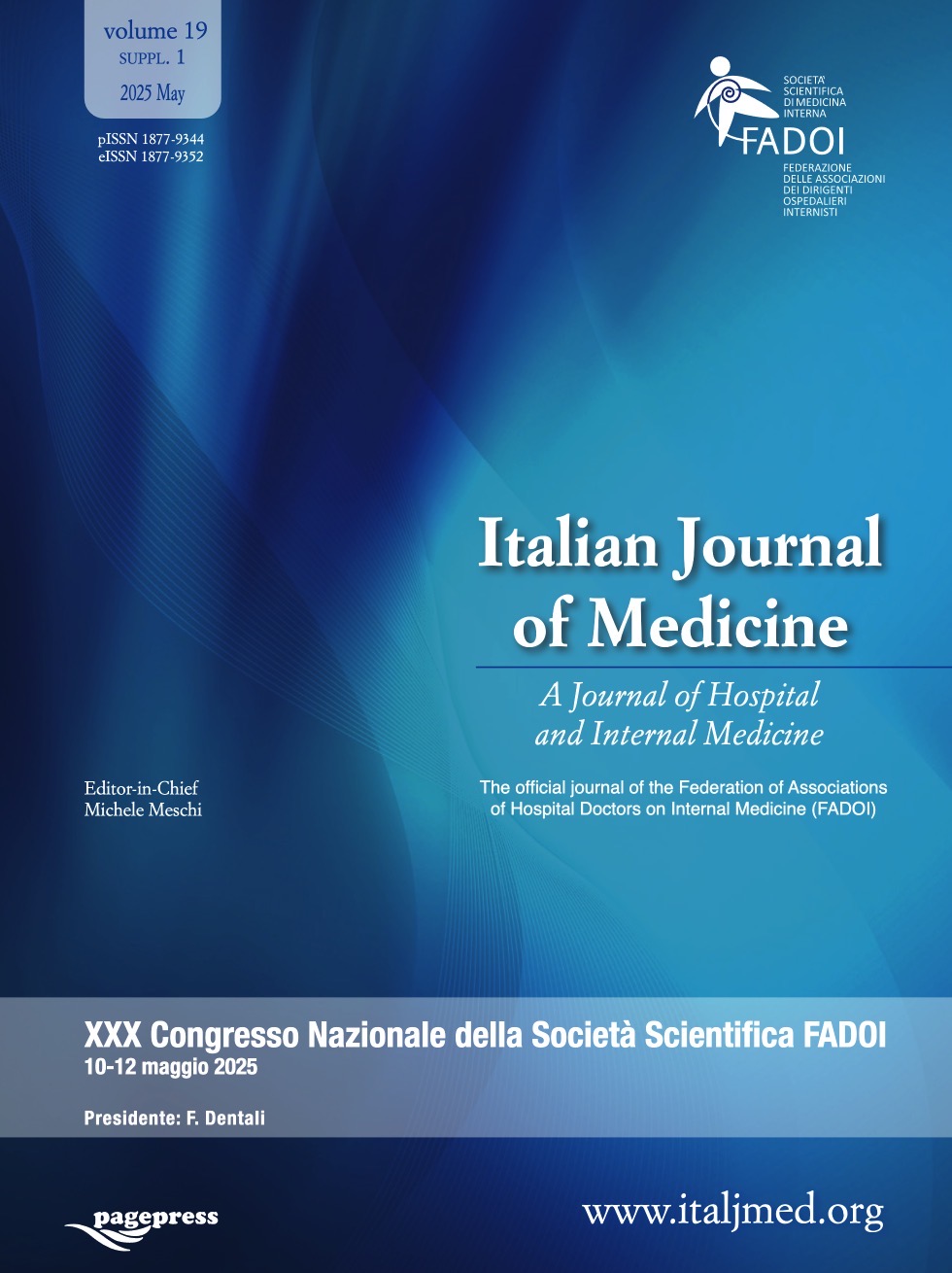Vol. 19 No. 1(s1) (2025): Abstracts of the XXX FADOI Italian Conference | 10-12 May 2025
Vol. 19 No. s1 (2025): Abstracts of the XXX FADOI Italian Conference | 10-12 May 2025
P05 | Could diabetes correlate with a congenital disorder?
H. Al Suwaidi1, M. Guerci2, L. Tavecchia2, A. Martinelli2, B. Larroux1, C. Binaghi1, M. Molteni2 | 1School of Specialization in Internal Medicine, University of Insubria, Varese, 2Department of Internal Medicine, Galmarini Hospital, ASST Sette Laghi, Tradate (VA), Italy
Publisher's note
All claims expressed in this article are solely those of the authors and do not necessarily represent those of their affiliated organizations, or those of the publisher, the editors and the reviewers. Any product that may be evaluated in this article or claim that may be made by its manufacturer is not guaranteed or endorsed by the publisher.
All claims expressed in this article are solely those of the authors and do not necessarily represent those of their affiliated organizations, or those of the publisher, the editors and the reviewers. Any product that may be evaluated in this article or claim that may be made by its manufacturer is not guaranteed or endorsed by the publisher.
Published: 25 August 2025
74
Views
0
Downloads







